

The SBNS is keen to provide funds to support fellowships.
For information please see the awards and prizes page here
In August the SBNS had the pleasure of welcoming two consultants from Kampala in Uganda to the ST1 boot camp as observers and two other Ugandan Neurosurgeons have also been invited to the ST3 boot camp in October. These visits are being funded by the SBNS Global Neurosurgery Initiative and are designed to support Ugandan colleagues establishing a boot camp in East Africa for local trainees.
Featured Report
Find out how Sebastian got on during his Caribbean Training Fellowship, funded by the Diana and Alan Karter Fund.

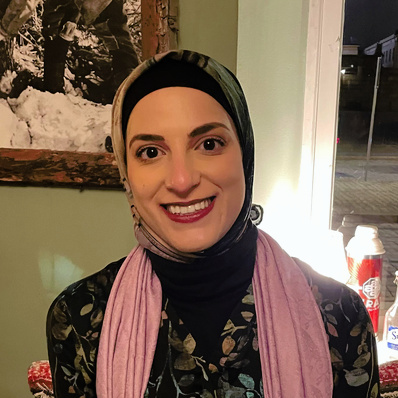
UK
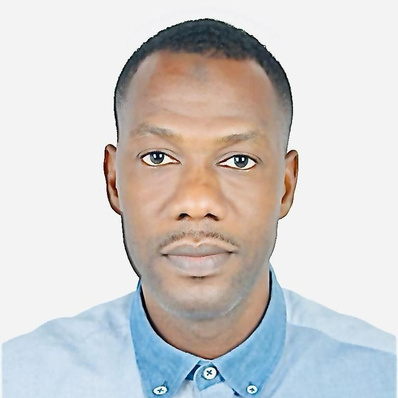
Ghana
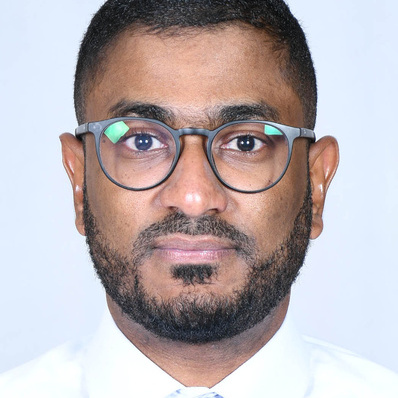
Kenya
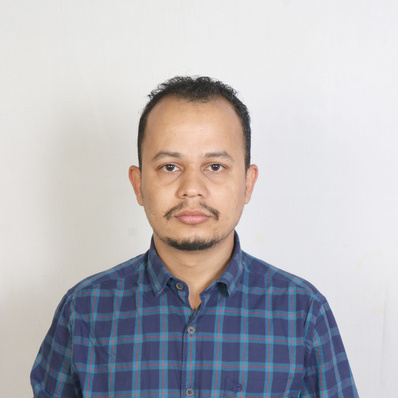
Nepal
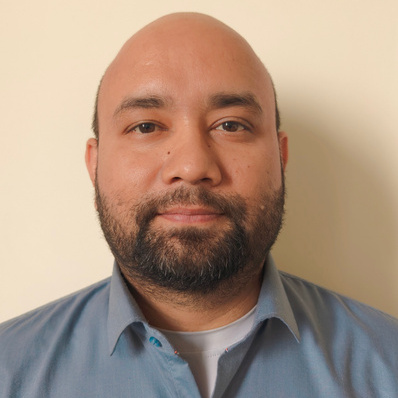
Nepal
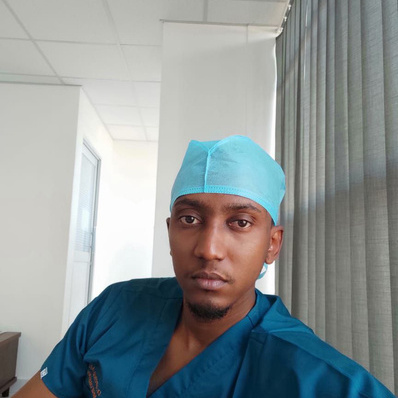
Kenya
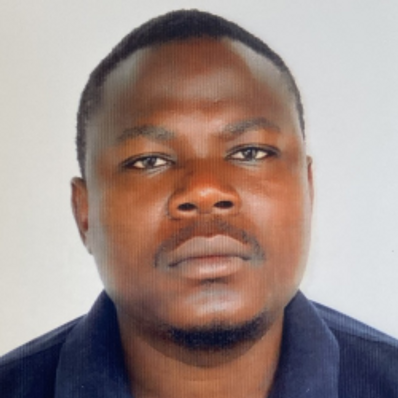
Tanzania
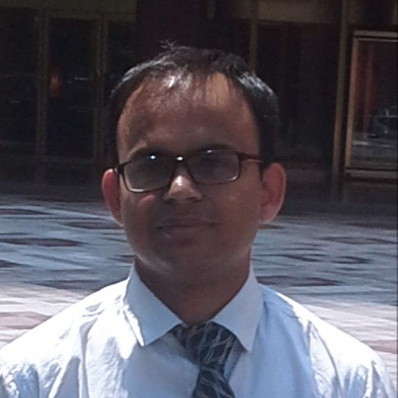
Nepal
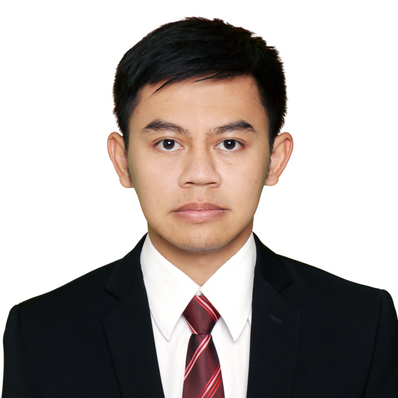
Indonesia
Ethiopia

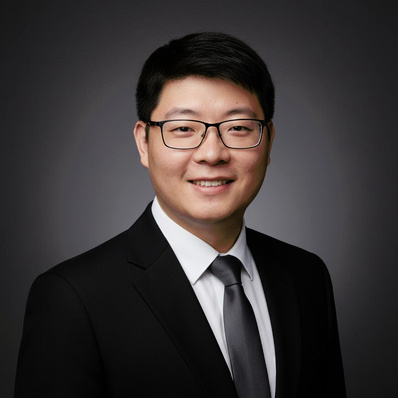

UK
I have been privileged to visit Jamaica as an SBNS Caribbean Training Fellow from September until December 2025. I’m currently an ST4 trainee in Yorkshire, and my goals were simple: to experience how neurosurgery is practiced in a different culture, to gain as much operative experience as possible, and broaden my experience working in a resource-limited setting.
Jamaica is an upper-middle income country with a population of almost three million people. It has four neurosurgical centres: three in Kingston, including a dedicated children’s hospital, and one in Montego Bay. I was based primarily at the University Hospital of the West Indies (UHWI) and spent some time at Kingston Public Hospital which receives the majority of the trauma. I worked with five consultants - Drs Bruce, Morgan, Lawrence, Wade and Charles, all of whom were very welcoming and generous with their teaching. I also worked alongside three other senior residents and a small handful of junior residents who put in tremendous amounts of time and effort to care for their patients.
During my three months, I attended fifty-nine surgical cases which spanned a whole range of neurosurgical pathology including trauma, brain tumours, pituitary lesions, aneurysm clipping, endovascular coiling, and spinal surgery for trauma, tumours, and scoliosis. A typical week consisted of two operating lists, a weekly clinic, alongside daily ward rounds, emergency operating and rotating on-call cover.
By day three, I was on-call and operating, a quick trial-by-fire way to get used to the system. The on-call shifts were 24 hours, or Friday morning until Monday evening over the weekend. I soon learned the importance of knowing people around the hospital and their direct mobile numbers - tricky when you’ve only just landed in the country.
Arriving in theatre for my first case, a subdural empyema, I was met with one functioning operating light, and told I'd need to make up the local anaesthetic - thankfully the junior resident must have seen the blank expression on my face and offered to help me out. I subsequently learned one of the consultants had sanctioned the use of the pneumatic drill, rightly thinking my experience with a hudson brace and gigli saw would be lacking.
Over the next few months I did learn to use a hudson brace and gigli saw, a useful skill for any neurosurgical trainee who might rely on it to get out of trouble on the rare occasion. Initially the kit seemed to have a bit of charm, but that feeling soon passes after struggling through a few sets of burr holes.
There are a few notable patients from my visit. One was a middle-aged lady with a suprasellar cyst who had gone blind. The fairly frequent phenomenon of delayed presentation was explained to me by one of my colleagues - ‘Jamaicans will sit on it’ - by which they meant some patients will be blind or hemiplegic for days, hoping it’ll go away, before they reluctantly seek medical attention. For this lady, we inserted an ommaya which immediately improved her vision. Post-op, she looked at me and said ‘you’re taller and slimmer than I expected’ - I think it was meant as a compliment.
For a change of scenery I joined the general surgeons for a below knee amputation, when the senior resident looked at me and said ‘you can do this’, to which I politely smiled and shook my head, and he agreed to walk me through the procedure. The patient was a sweet elderly lady who had the most infectious laughter and kept the whole theatre entertained throughout the procedure.
There are cultural and logistical differences I wasn't expecting: amputations performed on the ward, chest compressions on terminal patients, signage reminding visitors not to bring firearms into the hospital, and intermittent power or equipment outages. These experiences reflect the realities of working within a stretched healthcare system and a broader social context that differs significantly from the UK. When colleagues would notice the reaction on my face, they’d often shrug and say ‘welcome to the third world’ - a phrase long abandoned in the UK but still used frequently in Jamaica.
At the end of October, Jamaica was hit by Hurricane Melissa, a category 5 hurricane with winds over 180 miles per hour. Kingston was largely spared but as it made landfall in the west of the island, where it caused devastation and cost lives. I stayed in the hospital throughout the event and helped with the on-call. We saw a series of head and spinal injuries related to the hurricane, often associated with trees falling on heads. Afterwards, patients were stuck in hospitals with no homes to go back to, or unable to contact family members due to telecommunication outages. The local people are resilient, always quick to be thankful for what they have rather than mourn for what they’ve lost.
Overall, the learning points are too many to count. One key takeaway is how to operate with more limited equipment - suction that frequently blocks, bipolar that stops working, brainlab which isn’t reliable. Asking for skin staples to close often prompts a chorus of laughter from the theatre staff as they gently hand you a prolene on a straight needle. I learned how to be more frugal with equipment, and can appreciate what is essential from what is desirable.
Returning to the NHS has highlighted how fortunate we are in terms of infrastructure and access to resources. As surgeons, we are spared from draping the microscope, making up local anaesthetic or transporting patients to theatre, tasks that seem small individually but add to the cognitive load in an already demanding environment. Our patients don’t need to purchase expensive consumables - shunts, spinal implants or flowtrons - which in Jamaica can delay operations, or require surgeons to find an alternative solution for those that can’t afford it.
I’ve also learned to appreciate how smaller units rely on a handful of very dedicated individuals to care for their patients. In the absence of a large medical team, doctors frequently work late, and are available every weekend for operations and ward rounds to ensure their patients are properly cared for.
Aside from work, I was able to explore the island which is made up of fourteen parishes over eleven thousand square kilometers. Particular highlights were Negril which is lined by white sandy beaches and clear blue water, offering surprisingly warm water for scuba diving. Another highlight was Treasure Beach, less popular with tourists but a relaxing part of the south coast where I stayed with a lovely couple, Juliet and Wayne, and was well fed and looked after like it was home away from home.
I’ve had an enjoyable, eventful and fruitful three months in Jamaica. I’m very grateful to the Jamaican team for hosting me, Mr Thomson, Mr Mendoza and Mr Baxter for organising the fellowship, and the SBNS Diana and Alan Karter Fund for the financial support. I’d recommend the experience to any trainee looking to broaden their experience and see how neurosurgery is practiced in a different culture.

Kenya
The Society of British Neurological Surgeons (SBNS)
Alan and Diana Karter Award Committee
I would like to sincerely thank you for awarding me the Alan and Diana Karter Scholarship, which gave me the incredible opportunity to spend 3 months at Great Ormond Street Hospital (GOSH) in London. It was truly a life-changing experience, both personally and professionally.
During my time at GOSH, I was exposed to the very best of paediatric neurosurgery. I had the privilege of experiencing surgeries in a range of subspecialties — including epilepsy, craniofacial, vascular, neuro-oncology, complex hydrocephalus, and spinal surgery. I worked alongside masters in each of these fields, and their skill, wisdom, and dedication were deeply inspiring.
But it wasn’t just the surgeries that left an impact. Each day started with morning meetings where all the neurosurgeons came together to review cases and share insights. I also joined the major ward rounds and outpatient clinics, where I saw how key decisions were made — always with the patient at the centre. The multidisciplinary approach at GOSH was eye-opening: neurosurgeons, neurologists, oncologists, radiologists, nurses, physiotherapists, and psychologists all worked together seamlessly. This model of collaborative, holistic care challenged and broadened my understanding of what’s possible in neurosurgery.
The technology and resources at GOSH were far beyond what I’ve encountered in my home country, Kenya. From the advanced imaging tools to surgical planning systems and intraoperative equipment, I was constantly learning. It opened my eyes to what we can aspire to back home — and it also gave me new ideas for working more effectively within our resource-limited settings.
Just as importantly, I met some truly amazing people. The kindness, mentorship, and generosity of the team at GOSH made a lasting impression on me. Their willingness to teach and include me in every aspect of care meant the world, and the lessons I learnt from them will stay with me throughout my career.
My time at GOSH allowed me to realise a dream — to train, even briefly, in a world-class paediatric neurosurgery centre. I’m incredibly grateful to SBNS and the Alan and Diana Karter Award for making this possible. Your support for global neurosurgery is truly commendable, and I hope to pay it forward by contributing to the growth of paediatric neurosurgery in Kenya.
With heartfelt thanks,
Alwi Rashid Mohamed

Nepal
Report to the Society of British Neurological Surgeons (SBNS)
Clinical Attachment at Salford Royal Hospital and SBNS Belfast Conference
Name: Prakash Chandra Adhikari
Position: Neurosurgery MCh Resident
Date: May 12, 2025
Introduction
I would like to express my sincere gratitude to the Society of British Neurological Surgeons (SBNS) for providing me with the invaluable opportunity to attend the SBNS Conference held in Belfast and to participate in a clinical attachment at the Salford Royal Hospital. This experience has significantly broadened my academic perspective, improved my clinical understanding, and inspired me to incorporate new practices into my neurosurgical work in Nepal.
SBNS meeting at Belfast
Attending the SBNS Conference allowed me to engage with leading neurosurgeons and researchers from across the UK and beyond.
Key Learnings from the SBNS Conference – Belfast
1. Advances in Minimally Invasive Neurosurgery:
- Presentations on endoscopic techniques and tubular retractor systems showed clear benefits in reducing surgical morbidity, which is particularly relevant for resource-limited settings.
2. Chiari Malformation Management:
- There was a focused discussion on surgical techniques including posterior fossa decompression vs. C1-C2 fixation, which aligns directly with my current research interests.
3. Spinal and Functional Neurosurgery Innovations:
- Exposure to state-of-the-art spinal instrumentation and neuromodulation strategies gave me a vision for future possibilities in Nepal, where spinal pathology is common.
4. Quality Improvement and Patient Safety:
- Sessions focused on perioperative safety, surgical checklists, and audit culture reinforced the importance of structured quality assurance systems in neurosurgery.
Clinical Attachment at Salford Royal Hospital
My clinical attachment at Salford Royal Hospital under the supervision of Konstantina Karabatsou, Consultant Neurosurgeon, Neuro-oncology was an exceptional learning experience. I had the opportunity to observe and participate in multidisciplinary ward rounds, surgical planning meetings, and theatre procedures.
Key Learnings During the Attachment
1. Advanced Clinical Techniques and Technologies
- Minimally Invasive Neurosurgery: Exposure to endoscopic skull base surgery, keyhole approaches, and spinal navigation systems highlighted reduced morbidity and faster recovery times.
- Intraoperative Imaging: Experience with intraoperative ultrasound and neuronavigation tools demonstrated their role in precision and safety, particularly for tumor resections and complex spine cases.
- Neurocritical Care: Observing protocols for managing severe neurocritical patients reinforced the importance of multidisciplinary ICU care, including ICP monitoring and early rehabilitation.
2. Multidisciplinary Team (MDT) Collaboration and Team-Based, Protocol-Driven Care
- The integration of neurosurgeons, radiologists, oncologists, physiotherapists, and nurses in MDT meetings emphasized holistic decision-making. This approach optimizes outcomes for conditions like gliomas and spinal disorders. This model is something I aim to encourage in my home institution.
3. Neurotrauma and Emergency Care Pathways:
- I observed well-organized triage and neurocritical care management, which contrasts sharply with the resource constraints we face in Nepal. I hope to adapt elements of this system to improve trauma care in our setting.
4. Training and Supervision Methods:
- The emphasis on structured mentorship, progressive responsibility, and regular feedback in UK neurosurgical training offered insights into how we can improve our own residency programs.
5. Ethical and Patient-Centered Care
- Structured consent processes, shared decision-making, and palliative care integration underscored the balance between technical excellence and compassionate communication.
Relevance to Future Practice in Nepal
The knowledge and skills I gained during the SBNS conference and my clinical attachment are highly relevant to neurosurgical practice in Nepal. Specifically:
1. Adapting Techniques to Resource-Limited Settings
- Cost-Effective Innovations: Techniques like endoscopic hydrocephalus management (e.g., ETV) can be prioritized in Nepal, where pediatric hydrocephalus is prevalent and shunt complications are common.
- Training and Simulation: Low-cost simulation models (e.g., 3D-printed skulls) could enhance skill development in local residency programs.
2. Strengthening Multidisciplinary Care
- Advocating for regular MDT meetings in Nepali hospitals, even with limited specialists, could improve TBI and spinal injury outcomes through coordinated care pathways.
3. Advocacy for Technology and Infrastructure
- Collaborating with stakeholders to procure basic neuronavigation tools or portable imaging devices (e.g., ultrasound) could bridge gaps in rural and urban centers.
4. Research and Education
- Establishing local clinical registries (e.g., for TBI or spinal tumors) would generate context-specific data to guide practice. Partnerships with UK institutions via SBNS could foster mentorship and funding opportunities.
5. Ethical Frameworks
- Implementing structured consent processes and palliative care training for staff would address cultural stigma around end-of-life care in Nepal.
I aim to serve as a bridge between UK-based neurosurgical practices and the evolving needs of Nepal by fostering collaboration and exchange of ideas.
Recommendations for Collaborative Action:
1. Skill-Transfer Workshops: SBNS-supported workshops in Nepal to train surgeons in minimally invasive techniques.
2. Telemedicine Partnerships: Virtual MDTs with UK specialists to support complex case management.
3. Policy Advocacy: Leveraging SBNS networks to advocate for government investment in neurocritical care infrastructure.
4. Research Grants: Funding for low-cost innovation projects tailored to Nepal’s needs (e.g., affordable shunt alternatives).
Conclusion
This experience has been truly transformative. This attachment has equipped me with clinical, ethical, and leadership insights that align with Nepal’s urgent need for sustainable neurosurgical advancements. It has expanded my clinical knowledge, sharpened my
academic focus, and equipped me with practical ideas to improve neurosurgical care in Nepal. By integrating evidence-based practices, fostering collaboration, and advocating for systemic change, I aim to contribute to reducing Nepal’s neurosurgical burden.
I remain deeply thankful to the SBNS and to the team at Salford Royal Hospital for their generous support and mentorship.
I hope to build on this experience to foster long-term academic and clinical collaboration between the UK and Nepal.
Submitted by:
Prakash Chandra Adhikari, Neurosurgery MCh Resident
National Trauma Centre and Bir Hospital,
National Academy of Medical Sciences, Nepal
[email protected]
+977-9849093707

Nepal
Report on completion of 6 weeks travel fellowship at Walton Center, Liverpool, UK
Name: Niraj Giri
Fellowship duration: 17 March 2025 to 25 April 2025
Host institution: the Walton Centre NHS Foundation Trust, Liverpool, UK
Supervisor: Professor Andrew Brodbelt
Supported by : Society of British Neurological Surgeons (SBNS) and Neurosurgical Society of Nepal(NESON)
Introduction :
I am pleased to report the successful completion of my 6 weeks travel fellowship in the department of neurosurgery at the Walton centre, Liverpool. This observership was a unique and enriching experience that enhanced my understanding of neurosurgical practices within the UK national health services(NHS) and provided me with exposure to advanced clinical techniques, academic activities, and cross cultural experiences .
Clinical and academic experiences :
Under the expert supervision of professor Andrew brodbelt , I had opportunity to observes a wide range of neurosurgical procedures, including cranial , spinal , and functional surgeries including endovascular interventions. The clinical workflow, patient centred care and multidisciplinary collaboration demonstrated at the Walton centre were of the highest standard and offered valuable insights for applications in my own practice.
Furthermore, I was fortunate to attend the SBNS conference in Belfast where I engaged with recent development in neurosurgery , attended lectures and interacted with leading neurosurgeons, I also participated in functional neurosurgery masterclass in Walton centre which further added to my functional knowledge
Cultural and professional exchange:
I had the opportunity to explore the history, heritage and landscapes of UK which enriched my personal growth . interactions with collegues and professionals from various backgrounds enhanced my ability to work in a multicultural environment.
Acknowledgements:
I extend my sincere gratitude to the society of british neurological surgeons(SBNS) and the neurosurgical society of Nepal (NESON) for awarding me the scholarship that made this fellowship possible
My deepest thanks to professor Andrew Brodbelt for his exceptional mentorship and to the entire neurosurgical team at the Walton centre for their generous support and guidance. I am also grateful to all the staff at Walton centre for their warm hospitality and professionalism throughout my stay.
Special thanks to Aintree University Hospital for providing comfortale accommodation during the fellowship period and to Dr Ashish Basnet for his invaluable guidance and assistance during my time at Walton center . I also appreciate support from my fellow colleagues during this observership.
Conclusion:
This fellowship has significantly contributed to my clinical knowledge, surgical exposure and professional development. I return to Nepal inspired and better equipped to contribute to neurosurgical care and academic advancement in my home institution. I hope to continue building on relationships and knowledge gained through this opportunity.

Kenya
REPORT ON SBNS OBSERVERSHIP AT QUEENS SQUARE, NHNN, LONDON
INTRODUCTION
I had the privilege of undertaking a six-week observership at the National Hospital for Neurology and Neurosurgery (NHNN) at Queens Square in London. This experience has provided me with invaluable insights not only in advanced neurosurgical techniques and patient care but also on the importance of multidisciplinary approaches in improving patient outcomes.
CLINICAL EXPOSURE
Throughout the observership, I had the opportunity to observe and learn from a wide range of neurosurgical procedures and practices including:
I observed craniotomies for resection of both primary and metastatic brain tumors. The surgeons employed different cutting-edge technologies including awake craniotomies with speech and language mapping, the use of 5-ALA in high grade gliomas as well as the use of neuromonitoring, neuronavigation and intraoperative ultrasonography.
I also spent part of my observership at the Gamma knife suite. I learnt a lot on what the processes entail including frame-fitting, planning and dose selection for a variety of cases including oligometastatic disease, arteriovascular malformations, trigeminal neuralgia and vestibular schwannomas.
I was also involved in some functional neurosurgical cases where I observed the processes involved in deep brain stimulation for Parkinson’s disease as well as microvascular decompression surgeries for trigeminal neuralgia.
An important component of my observership was attending multidisciplinary team meetings comprising of neurosurgeons, oncologists, radiologists and pathologists where discussions were held concerning difficult cases. I was also privileged to witness collaboration between different specialties in theatre an example of which is between ENT and neurosurgery for translabyrynthine approach to a vestibular schwannoma.
CONCLUSION
My time at NHNN has been an invaluable experience. The exposure to a wide range of surgeries, advanced technologies, and multidisciplinary care has greatly enhanced my clinical knowledge and understanding of neurosurgery in general. I am grateful for the opportunity to learn from some of the leading experts in neurosurgery and look forward to carrying forward the knowledge gained during this observership.
ACKNOWLEDGEMENTS
I would like to extend my sincere gratitude to Mr. Ciaran Hill, Mr. Grover, Mr. Akram, Mr. Hyam and the rest of the neurosurgical team at NHNN for their guidance, support, and willingness to allow me to observe their work. Their expertise and dedication to patient care have left a lasting impact on me. I would like to also express my gratitude towards the SBNS Alan and Diana Karter Global Fund as well for their support.
Dr. Benson Maina
FCS(Neuro) – ECSA
SBNS, Alan and Diana Karter Global Fund Recipient 2024
Kenya

Tanzania
I'm grateful for the opportunity to present at the Society of British Neurological Surgery meeting in the UK, all thanks to the support of the SBNS global neurosurgery travel grant. The presentations were truly enlightening, showcasing the innovative spirit driving the field of Neurosurgery forward. Leaving the conference, I feel inspired and empowered to push the boundaries of science and medicine further in my home country.
In addition, my three-week experience at the Royal Infirmary Hospital of Edinburgh exposed me to cutting-edge medical technology like intraoperative Brain Lab and Focused Ultrasound thalamotomy for movement disorders. I'm impressed by their patient-centered care and privacy measures. The high standard and well-organized theatre settings, equipped with advanced tools run by highly specialized personnel left a lasting impression.
I'm thankful to Weill Cornell Tanzania Neurosurgical Initiative under Prof. Roger Hartl of United states of America for their tireless efforts in providing state-of-the-art technology, such as Brain Lab navigation for spine instrumentation, MIS technology like the Viseon camera, and Tubular retractor, among others, to the least developed world such as Tanzania. Initiatives like these are essential for bridging the gap in healthcare standards between high-income countries and less developed regions.
Feeling hopeful and inspired, I'm eager to apply the valuable lessons I've learned in my future training and career endeavors.
SBNS Global Neurosurgery Travel Bursary Beneficiary 2024.

Nepal
15th August, 2024
I would like to thank the Society of British Neurological Surgeons (SBNS), Alan and Diana Karter Global Fund for providing me with a travel bursary. I completed a clinical attachment placement in Skull base neurosurgery at Salford Royal Foundation Trust, Salford from 9th July 2024 to 9th August 2024 under the supervision of Professor Scott Rutherford in the department of Neurosurgery.
During this placement I had the opportunity to observe patients undergoing treatment in the skull base unit. I attended clinics where patients where assessed and prepared for surgery. I took part in the in patient rounds and observed the system. I also learned about the management of these patients. I attended four multidisciplinary team (MDT) meetings involving neurosurgeons, neurologists, neuro radiologists, radiation oncologists and medical oncologists. These meetings were really helpful.
I got an opportunity to observe skull base surgeries under Prof Scott, Prof Omar, Prof Andrew, ENT consultants at Salford Royal. The major surgeries I observed during this period were translabyrinthine approach for vestibular schwannoma, retrosigmoid approach, pterional craniotomy, orbitozygomatic craniotomy, petrosectomy, endoscopic pituitary surgery.
Overall this was a very helpful clinical attachment for me and I am really grateful to both SBNS and Prof Scott for this placement.
Prabhat Jha
MS, M.Ch Neurosurgery
Nepal

Indonesia
The neurosurgery programme at Charing Cross Hospital offered a valuable opportunity to witness complex surgeries firsthand. The neurosurgeons, especially mr Nigel Mendoza, Joe Mariadas, Arthur Dalton and Ramesh Nair were knowledgeable and approachable, and I felt comfortable asking questions. However, due to the nature of the observership, there were limited opportunities to directly participate in patient care. Overall, it was a great experience for those with a strong interest in neurosurgery, especially skullbase surgery. I would recommend this observership to anyone interested in learning more about neurosurgery, especially the technical nuances of skullbase surgeries.
Syailendra Fii Sulaiman (MD)
Ethiopia
My Journey in Pediatric Neurosurgery:
Skill Enhancement and Knowledge Exchange
I would like to express my gratitude to the Society of British Neurological Surgeons
(SBNS) and the Alan and Diana Karter Global Fund for awarding me a travel
bursary. This opportunity allowed me to attend an observership with world-class
experts in pediatric neurosurgery for six weeks. As a result, I have become one of
the few neurosurgeons in East Africa with advanced experience in this field.
The scarcity of pediatric neurosurgery specialists in our region significantly
impacts the quality of healthcare for our youngest patients. Thanks to the support
from SBNS, I am now better equipped to address this critical issue and help
millions of people in Africa who are in urgent need of advanced pediatric
neurosurgery services. The knowledge and skills I gained have not only enhanced
my capabilities as a neurosurgeon but have also enabled me to teach and mentor
residents and fellow neurosurgeons in Ethiopia, which is essential for meeting
Africa's healthcare needs.
Additionally, the award provided me with a unique chance to connect with worldrenowned
pediatric neurosurgeons and benefactors. This network will be
instrumental in addressing resource shortages in East Africa for performing
advanced pediatric neurosurgery. I was also privileged to collaborate on research
projects with UK pediatric neurosurgeons, focusing on common pathologies in
Africa. This collaboration has allowed me to contribute to the global advancement
of neurosurgery. I look forward to welcoming UK medical students, residents, and
neurosurgeons to East Africa, where they can gain experience with the region’s
prevalent pediatric neurosurgical conditions.
Thank you once again for this incredible opportunity.
Sincerely,
Henok Molla, MD
UK
The Alan and Diana Karter Award report SBNS Global Neurosurgery placement Clínica FOSCAL. Bucaramanga, Santander, Colombia 12th August – 20th September 2024 Clínica FOSCAL FOSCAL International campus
This summer, I had the privilege of visiting the Neurosurgery Department at Clínica FOSCAL (Fundación Oftalmológica de Santander Clínica Ardila Lulle) in Bucaramanga, Colombia. Thanks to the SBNS Global Neurosurgery programme and the Alan and Diana Karter fund award, I was able to observe and actively participate in the department's daily activities under the guidance of Dr. Mario Bueno, Consultant Neurosurgeon, and Dr. Javier Serrano, Head of Department. The experience included a significant amount of clinical exposure to cranial and spinal cases, elective and emergency surgeries, and multidisciplinary case discussions.
Differences in Neurosurgery
The most valuable part of this placement was observing the differences in pathology and neurosurgical practices between Colombia and the UK. Colombia's diverse population and unique socio-economic landscape contribute to an epidemiological pattern distinct from developed European countries. For instance, the near absence of discogenic cauda equina syndrome reflects genetic and nutritional factors, while high rates of motorcycle accidents, cranial gunshot trauma and spinal knife injuries highlight social and political challenges. I also noticed how those political and economic factors influence healthcare delivery. Colombia, despite having fewer resources than the UK, operates without significant waiting lists for elective neuro-surgeries, revealing how political factors affect patient care. Access to diagnostic imaging and advanced neuroradiology varies widely, ranging from well-equipped centres like FOSCAL to poorly resourced regions. This contrasts sharply with the UK, where the NHS has made significant strides toward standardizing care across the board. Neurosurgical care in Colombia is less standardized, with decisions largely resting on individual consultant judgment rather than strict adherence to guidelines. This flexible approach fosters diversity in clinical opinions, leading to more in-depth discussions of cases, which is highly beneficial for training and personalized patient care. While protocol-driven systems like the NHS have their advantages, the less regulated environment in Colombia allows for tailored treatment plans and rich educational experiences.
Surgical Techniques and Case Exposure
During my time at FOSCAL, I had the opportunity to observe and try surgical techniques rarely undertaken in the UK. This included left-sided approach for anterior cervical discectomy and fusion (ACDF), likely a North American influence. Traditional techniques like Chance screws and the Cloward approach to the anterior cervical spine seem to be commonly used in Colombia. One of the highlights of this placement was the volume of spinal fixation surgeries. In just six weeks, I participated in more spinal fixation (index) cases than what is required for neurosurgery certification in the UK. Collaboration with other specialties was also an enriching aspect of the visit. For instance, head and neck surgeons assisted with anterior cervical approaches, and ENT surgeons were involved in transsphenoidal surgeries, further adding to the range of techniques I was exposed to.
Cultural and Educational Insights
A key highlight of the placement was gaining insight into how education and societal norms shape patient care. In Colombia, where education levels vary widely, doctors often take a more paternalistic role in decision-making, guiding patients more directly than in the UK. This contrasts with the UK’s approach, where surgeons increasingly act as information providers, encouraging patients to make their own informed decisions. This experience broadened my understanding of how medical practices adapt to different cultural contexts and patient expectations.
Collaboration and Knowledge Exchange
The most rewarding aspect of the visit was the opportunity to meet and collaborate with the local neurosurgical team. This exchange of experiences and perspectives was truly enriching, and I hope it was mutually beneficial. Learning came not only from case discussions but also through sharing different sources of information. There may be a tendency to rely on the familiar trials, textbooks, and online resources commonly used in the UK and discovering different trials, literature and online materials was therefore particularly refreshing. I hope this visit highlights the value of international collaboration and exchange of information in neurosurgery and encourages further global mobility.
Challenges and Recommendations
Medical licensing and local insurance regulations continue to pose challenges for international neurosurgery mobility. Having a full medical licence to practise in Colombia was crucial in allowing me to participate actively in patient care and surgical procedures. While observer roles can be insightful, hands-on experience is far more valuable, and I recommend prioritising placements where trainees are permitted to engage directly in clinical practice. Insurance requirements, such as mandatory health coverage, civil liability, and health and safety policies, led to a slight delay and additional costs at the start of my placement. However, this delay coincided with the Colombian Society of Neurosurgery’s annual symposium which I was able to attend. This was an excellent opportunity to network and gain a broader perspective on neurosurgical practices in Colombia.
Conclusion
This experience has been formative, both professionally and personally. It has expanded my perspective on neurosurgical practices and highlighted the importance of flexibility and adaptability in global health. I return from this placement as a more well-rounded surgeon, with an improved awareness of the complexities and nuances of neurosurgery in different socio-political contexts.
Alvaro Villabona, Newcastle Upon Tyne, UK September 2024
See Yung Phang to visit India
Euan Strachan to visit Nepal
Alistair Lawrence to visit Jamaica
Howra Ktayen to visit Nepal
Rebecca Hodnett to visit Nepal
Mathew Myers to visit Jamaica
Nathan McSorely (UK)
Shafi Zahid (Afghanistan)